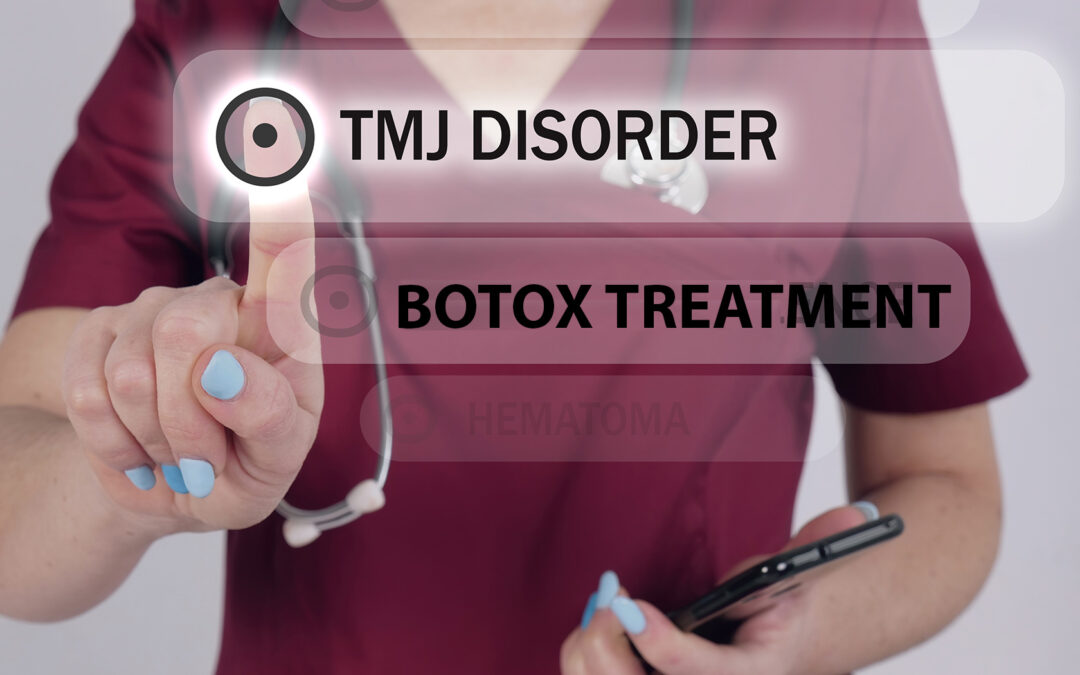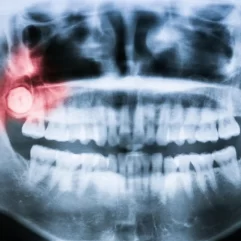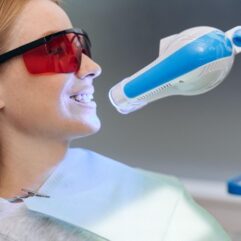TMJ Disorder: Symptoms, Causes, and Treatment
Using Botox Injections for TMJ Disorder Relief: What You Need to Know
Temporomandibular joint (TMJ) and Temporomandibular joint disorder (TMD) is a condition that affects the jaw joint and muscles that control jaw movement. The temporomandibular joints are the joints in front of the ears attaching the lower jaw to the skull. They are essential to daily jaw functions such as opening and closing your mouth, chewing, and speaking. TMD refers to temporomandibular joint disorders.
TMJ and TMD can cause pain and discomfort in the jaw joint and surrounding muscles and difficulty with jaw movement.
What Are TMJ Disorders (TMD)?
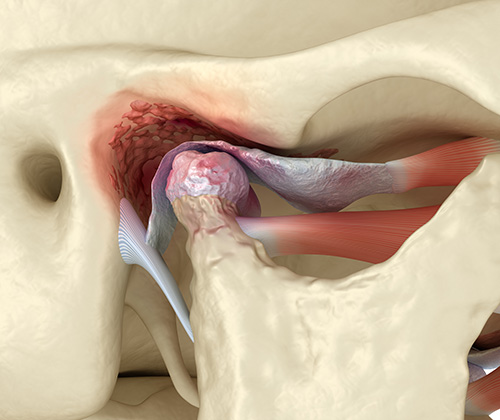
The invisible battle within the inflamed jaw of TMJ is a painful reality for many.
TMJ disorders are pain in the area of the jaw and jaw muscles and limitations in the ability of the jaw to operate normally while speaking, eating, and swallowing.
TMJ disorders refer to conditions manifested by
The National Institute of Dental and Craniofacial Research of the National Institutes of Health states that 10.8 million people in the US suffer from TMJ problems. 90% of those seeking treatment for TMJ / TMD are women during their childbearing years.
What Causes TMJ Disorders?
Medical research has not yet defined all the causes of the various TMJ disorders. Stress, injury, and habits that damage muscle and jaw joints are constants. What can be done in this day and age without risky surgical procedures to assist patients with more straightforward treatments is what we should be providing as solutions to such issues. Numerous courses of treatment are available today, and combinations of such therapies are often synergistic.
Symptoms of TMJ and TMD Disorder
- Frequent headaches
- Uncomfortable bite
- Neck/shoulder/back pain
- Facial swelling
- Pain in the face
- Pain in the jaw joint and/or the ear
- Jaw locking when jaw open or closed
- Restricted ability or complete inability to open the mouth without pain
Treatment of TMJ and TMD Disorder
The first step is to make an appointment for an evaluation. The first assessment should determine how serious the patient’s issue is and whether it is mainly a muscular or a physical joint problem, which may require different interventions. For jaw joint issues, there may be problems an MRI would reveal. Our doctors will take X-rays of your jaw and a record of your bite and the forces that are affecting your bite. Once they have done the necessary evaluations to diagnose the problem, they will work with you to formulate a plan that works for you and with your life and busy schedule. Each patient is unique, so each plan is unique.
A severely damaged disc and advanced condylar or articular surface damage may very well require surgical intervention, but those cases are genuinely — and thankfully — few and far between. Suffice it to say that many people are fans of the alternative in almost every instance. Many widely known treatments are what we’ll describe herein.
Botox injections for TMJ and TMD
One of the more popular treatment options for Temporomandibular joint disorder is the use of Botox injections. Botox, short for Botulinum toxin, is a neurotoxin produced by the bacterium Clostridium botulinum. When injected into muscles, Botox temporarily paralyzes them, preventing them from contracting and causing excessive force on the jaw joint. Botox is thought to be effective in treating Temporomandibular joint disorder because it can reduce muscle tension and spasms in the jaw. By relaxing the muscles in the jaw joint, Botox can help alleviate pain and improve jaw function.
Botox injections for Temporomandibular joint disorder are typically administered directly into the affected muscles by a trained healthcare professional. Some potential benefits of using Botox for TMJ disorder treatment include:
- Pain relief: Botox injections can help reduce pain and discomfort in the jaw joint and surrounding muscles.
- Improved jaw function: By relaxing the muscles in the jaw, Botox can help improve jaw movement and function.
- Non-invasive treatment: Botox injections are a non-invasive treatment option for TMJ disorder that can be performed in a healthcare provider’s office.
- Temporary effects: The effects of Botox injections for TMJ disorder are temporary and typically last for a few months. This can be beneficial for people who want to try a conservative treatment option before considering more invasive procedures.
- While there are various treatment options available for Temporomandibular joint disorder, Botox injections have emerged as a promising approach for managing the symptoms associated with this condition. In recent years, the effectiveness of Botox for TMJ disorder has been increasingly studied and recognized by healthcare professionals.

Living with the Pain and Discomfort of TMJ – a Constant Battle that Many People Face Every Day.
Botox, short for Botulinum toxin, is a neurotoxin that works by blocking the release of acetylcholine, a neurotransmitter responsible for muscle contraction. When injected into the muscles of the jaw affected by TMJ disorder, Botox temporarily paralyzes these muscles, reducing pain, muscle tension, and spasms. Botox can alleviate TMJ-related symptoms and improve jaw function by targeting the overactive muscles in the jaw joint.
Numerous clinical studies and research trials have demonstrated the effectiveness of Botox injections for the treatment of TMJ disorder. One study published in the Journal of Pain Research found that patients who received Botox injections experienced significant reductions in pain and dysfunction compared to those who received a placebo injection. The study concluded that Botox injections can be an effective and well-tolerated treatment for TMJ disorder-related pain.
Another study published in the Journal of Oral and Maxillofacial Surgery examined the long-term effects of Botox injections for TMJ disorder and found that patients experienced sustained relief from symptoms up to six months after treatment. This study highlighted the potential for Botox injections to provide lasting benefits for individuals with TMJ disorder.
One of the key advantages of Botox injections for TMJ disorder is their minimally invasive nature. Unlike surgical procedures or more invasive treatments, Botox injections can be performed in a healthcare provider’s office with minimal discomfort and downtime. Patients typically undergo a series of Botox injections over several sessions, with noticeable improvements in pain and jaw function observed within a few days to weeks after treatment.
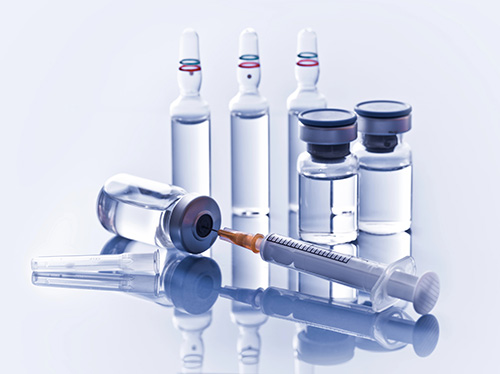
Relief of TMJ with Botox – a Modern Approach to Easing Jaw Pain and Tension.
While Botox injections for TMJ disorder have shown significant promise in clinical studies, it is essential to consider the individual factors that may influence treatment outcomes. The effectiveness of Botox for TMJ disorder can vary depending on the severity of the condition, the specific muscles targeted for injection, and the patient’s overall health and response to treatment.
It is important to note that Botox injections for TMJ disorder may not be suitable for everyone, and individual results may vary. It is recommended to consult with a healthcare provider who specializes in TMJ disorders to determine if Botox injections are a suitable treatment option for your specific condition.
In conclusion, Botox injections can be a valuable treatment option for individuals with TMJ disorder, as they can help reduce pain, improve jaw function, and provide a non-invasive approach to managing symptoms. Always consult with a healthcare provider to discuss the benefits, risks, and considerations of using Botox for TMJ disorder treatment.
Healthline has an article on Botox for TMJ: Cost, Side Effects, Efficacy, and More.
If you have questions or need additional information, please Contact Us or Request a Quote to send us your dental inquiry, and we’ll get back to you.

